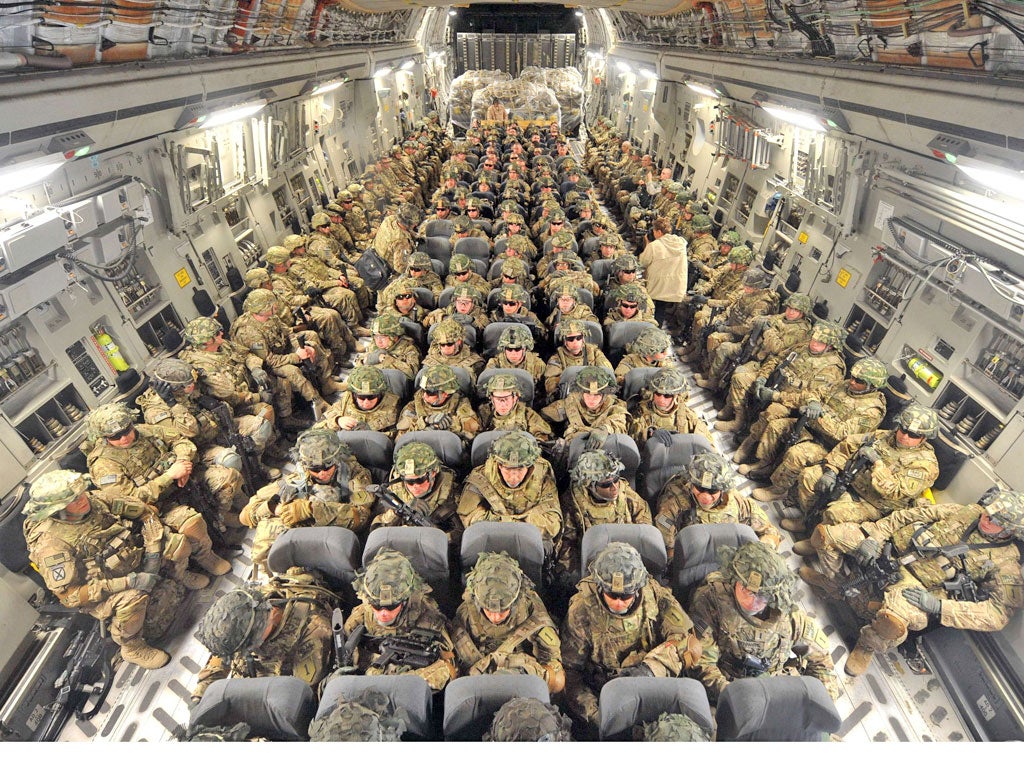US warns mass withdrawal would be a disaster

Any large-scale withdrawal of international forces from Afghanistan would help the enemy and undermine gains, according to a confidential US military report. The drawdown should instead, the report says, be avoided until as late as possible before the 2014 deadline for an end of the combat operations. The blunt assessment comes as Barack Obama and David Cameron face intense pressure to bring troops home as quickly as possible from the war.
The study highlights the need for about 2,000 more battle-hardened veterans to be deployed alongside Afghan forces. Although providing the reinforcements is a decision for the US Central Command, the British military is likely to receive a request for help.
Yesterday, the UK's National Security Council (NSC) met to consider the scale and pace of the British pull-out with some ministers supposedly demanding that the size of the 9,500 strong-contingent be cut by almost a half in the next 18 months.
Senior commanders, led by the Chief of Defence Staff, General Sir David Richards, have stressed that too precipitous a withdrawal could undermine the exit strategy. The NSC recommendations will be sent to Downing Street. A British general said: "We hope the Prime Minister is content to take military advice. But everyone is really watching to see what the Americans do. If they go for a faster drawdown, then David Cameron may feel he cannot expose his political flanks."
The Pentagon document states taking out additional troops next year would make it difficult to hold ground captured from insurgents.
The analysts caution that the "fluid situation in Pakistan as well as Afghanistan" must be borne in mind when working out the withdrawal timetable. An addendum to the document mentions "persistent rumours" of a "soft coup" in Pakistan.
Join our commenting forum
Join thought-provoking conversations, follow other Independent readers and see their replies
Comments
Bookmark popover
Removed from bookmarks